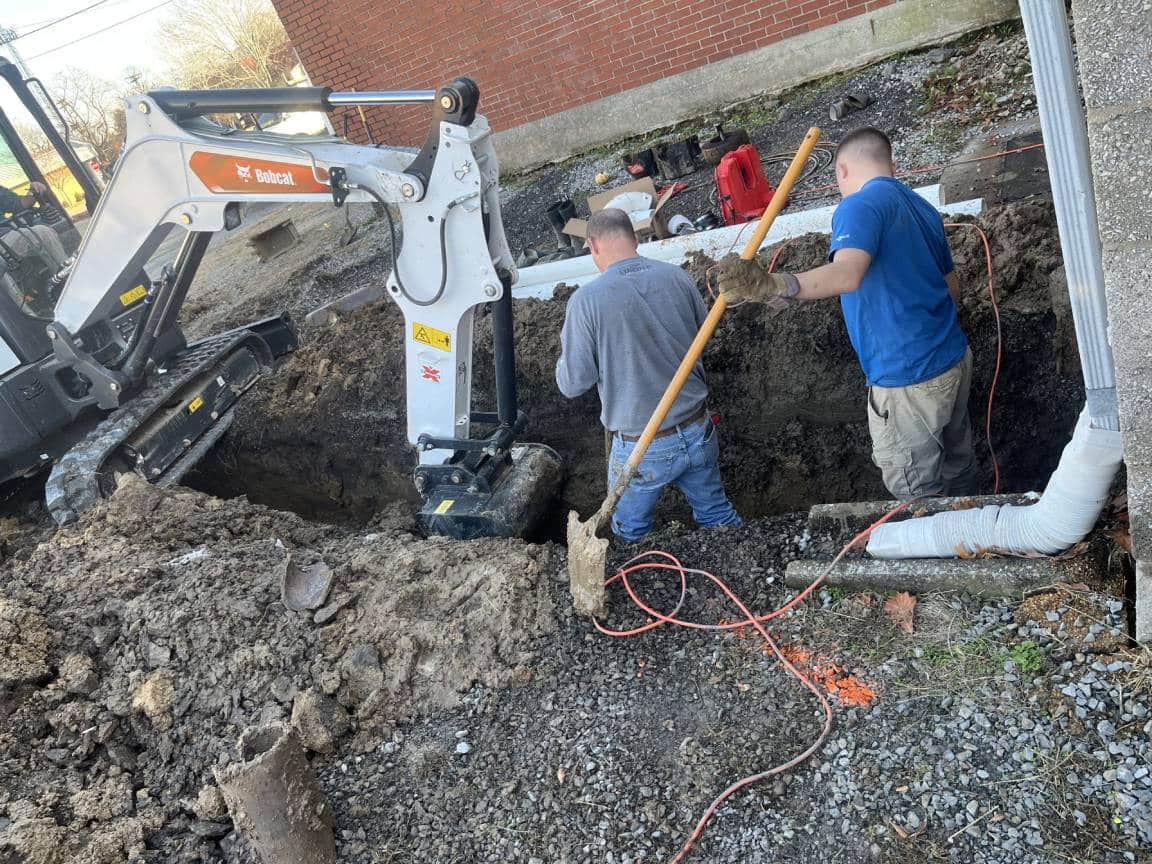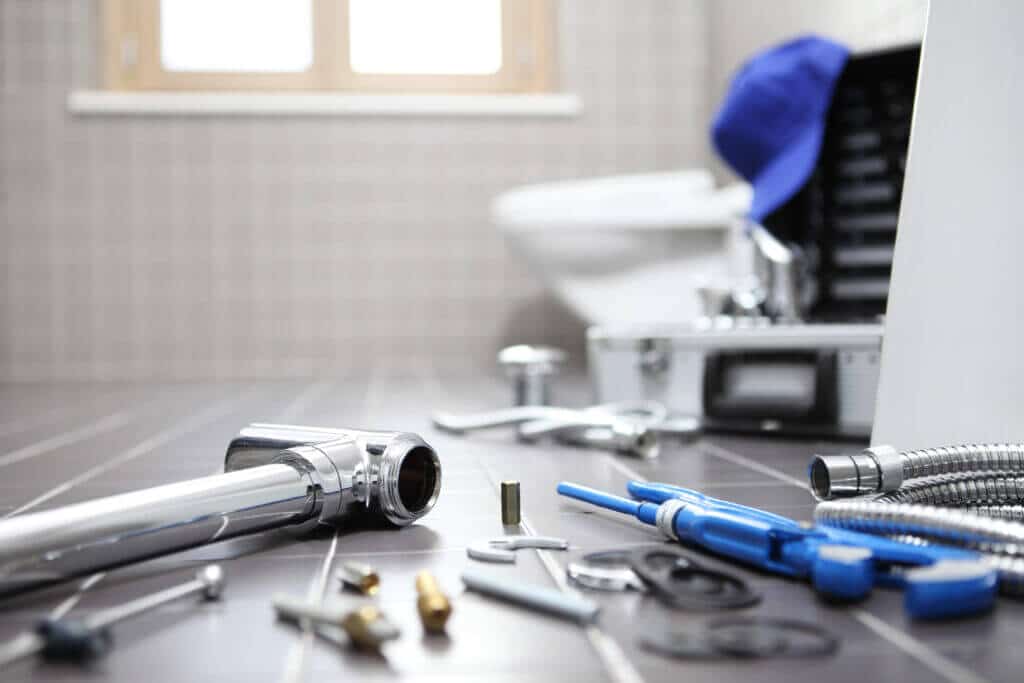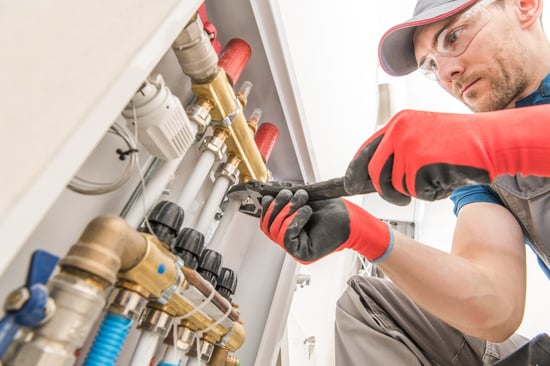DIY Plumbing Solutions: Take Care Of Little Problems Before They Come To Be Huge Troubles
In the world of home maintenance, pipes problems typically occur all of a sudden, offering both obstacles and opportunities for positive homeowners. Understanding exactly how to attend to these minor problems not only preserves the integrity of your plumbing system but also boosts your overall home efficiency.
Identify Common Plumbing Issues
In the world of home upkeep, determining typical pipes problems is important for preventing much more considerable damage and costly repair services. Home owners should stay watchful for indicators that show possible pipes issues, such as leakages, clogs, and unusual noises.
One widespread problem is dripping faucets, which might seem minor but can cause substantial water waste and enhanced utility costs if not addressed without delay. Slow or clogged up drains pipes can indicate a build-up of debris or international objects, necessitating instant attention to stay clear of more obstruction.
One more usual issue is changing water stress, which can result from various factors consisting of pipeline blockages or community supply issues. Homeowners need to likewise recognize water spots on ceilings or wall surfaces, as these might signal covert leakages that might endanger architectural stability.
Devices You Need for DIY
A well-appointed tool kit is crucial for any type of property owner aiming to tackle do it yourself plumbing projects effectively. Having the right devices at your disposal can make the difference between a basic fix and a pricey repair.

Key devices consist of a pipeline wrench, which offers the utilize needed to grasp and turn plumbing components, and an adjustable wrench for functional usage on different nut sizes. A set of pliers, especially slip-joint and needle-nose ranges, aids in gripping, turning, and reducing tasks.

For securing joints and connections, Teflon tape and pipe joint compound are important. Furthermore, a container can aid contain any spills during fixings, while a set of safety goggles will secure your eyes from debris.
Step-by-Step Fixing Strategies
Understanding detailed repair work strategies is crucial for effectively dealing with common pipes problems. When confronted with a leaky faucet, as an example, start by shutting off the supply of water to avoid additional leak. Next off, remove the faucet handle making use of a screwdriver or Allen wrench, revealing the inner parts. Inspect the O-ring and washing machine for wear; these are commonly the culprits behind leaks. Replace any kind of try these out broken parts and reconstruct the faucet, guaranteeing each component is safely fitted.
For a blocked drain, start by utilizing a plunger to develop suction and remove the blockage. If this doesn't work, take into consideration utilizing a drainpipe snake to reach deeper obstructions. Put the serpent into the drainpipe and revolve it to separate the blockage. HP plumbing carbondale il. As soon as gotten rid of, flush the drain with warm water.
When it comes to a running bathroom, remove the tank cover and evaluate the flapper valve. If it's put on or misaligned, replace it to restore proper function. Constantly ensure that you have the essential tools and products at hand prior to beginning a repair service, which promotes an extra reliable and effective end result. By following these strategies, you can efficiently take care of minor pipes issues prior to they rise.
Preventative Maintenance Tips
Resolving pipes problems immediately can prevent them from intensifying into even more considerable problems, making normal upkeep vital. Applying a collection of preventative upkeep practices can assist ensure the durability of your plumbing system and reduce expensive repair work.

High water pressure can strain pipelines and components, leading to leaks. A water pressure scale can aid you identify if modifications are necessary.
Finally, schedule regular examinations with a pipes specialist. This aggressive strategy can identify possible issues before they become considerable problems. By following these preventative upkeep ideas, you can protect your pipes system and appreciate comfort.
When to Call a Professional
Figuring out the right minute to enlist the knowledge of a plumbing professional can be important in avoiding minor issues from spiraling into costly repair work. While lots of pipes tasks can be handled successfully with DIY solutions, particular circumstances necessitate specialist treatment to make certain safety and security and appropriate resolution.
Indicators that it's time to call a plumber consist of persistent leaks, considerable water pressure adjustments, or the existence of mold and mildew and mold, which may indicate hidden water damage. Additionally, if you run into obstructions that resist conventional techniques such discover here as plunging or snaking, an expert can provide innovative strategies and equipment to fix the issue without harming your pipes system.
Moreover, if you are uncertain concerning the resource of a problem, or if your pipes concern entails facility systems like sewer lines or gas connections, it's ideal to accept a qualified plumbing professional. Attempting to address these concerns without the proper knowledge can bring about dangerous circumstances.
Verdict
In summary, addressing minor pipes concerns with Do it yourself solutions is both affordable and sensible. Via proactive actions, homeowners can keep their pipes systems and prevent more significant, costly repairs.